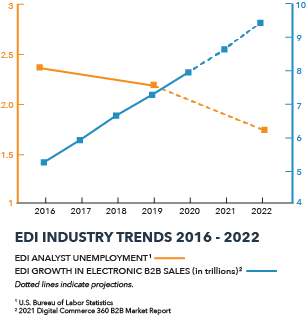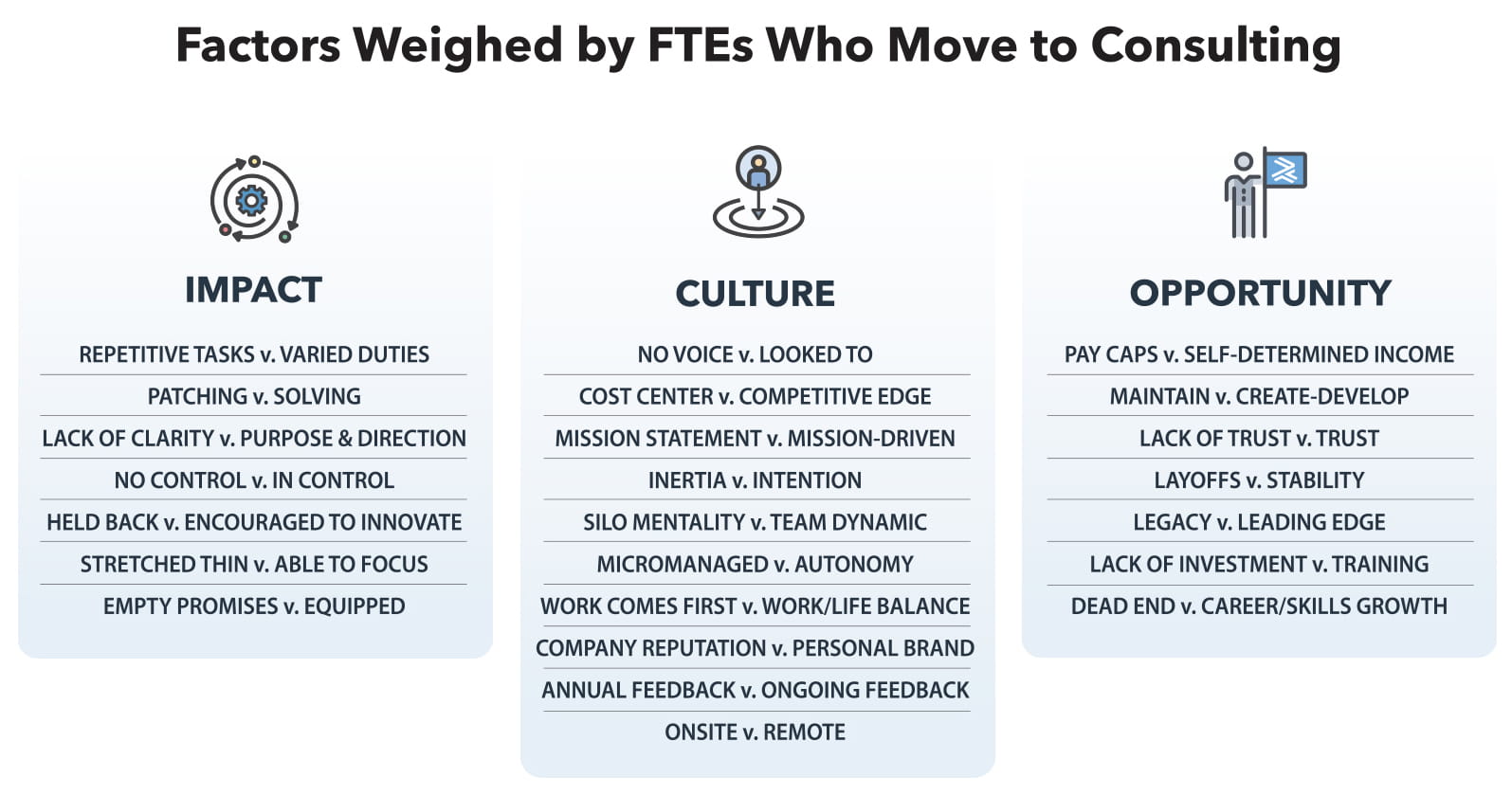
Even if some managers wish it would, we can say with confidence that post-pandemic, remote work is not going away.
Pre-pandemic, according to a recent Ladders study, only 4% of jobs in the U.S. and Canada were hiring for permanent remote positions, mainly tech and sales jobs.
Based on responses from the 50,000 largest U.S. and Canadian employers, Ladders projects the number rising to 25% by the end of 2022. This article will explain what this trend means for EDI managers with stalled projects, or on-hold modernizing initiatives.
First, we’ll look at the reasons why remote work has woven itself into the fabric of the modern workplace.
Why Remote Work Is Here to Stay
The pandemic forced companies of all sizes—including ours—to ask, can we work remotely?
The answer was a resounding yes—especially for IT and tech.

It’s not a stretch to imagine that one day, the transition to remote working will be regarded as a societal shift as massive as the effect of the GI Bill at the end of WW II.
in the 2021 State of Remote Work Report from Owl Labs, 90% of employees say they were as productive if not more so working remotely than then working from the office. Another 74% report improved mental health because of being able to work from home.
The benefits of the remote staffing model aren’t limited to employees. Hiring managers are finding that in many instances, the option to offer remote positions alleviates the local talent supply/demand dynamic while increasing access to experts nationwide, without the interviewing or relocation expenses that come with out-of-town hires.
Remote workers have become a sought-after demographic among mid-size American cities eager to attract a new generation of professionals to put down roots in their communities and stimulate local economies. For example, Remote Tulsa plans to spend $11 million this year providing $10,000 grants to remote workers who fit the program’s criteria.
Leaders behind the initiative anticipate that spending by remote workers will create 5,000 local jobs by 2025 if the remote incentive program grows as expected.
EDI Consultants— Remote Work Pioneers?
Like many companies, Remedi operates a hybrid staffing model. The combination of on-site and remote collaboration with weekly check-ins between headquarters and non-Columbus staff members is working well.
In our pre-pandemic experience, the requirement that integration consultants be on-site was already in rapid decline. The shift to remote in the wake of Covid-19 and its variants have nearly eliminated the on-site requirement.
Enhancements in remote access capabilities, video conferencing, security, and activity monitoring have enabled the remote trend to take hold, not to mention the average savings of $1,000-1,400 in T&E per consultant per week.
Obviously, the remote model doesn’t work for a range of activities—operating heaving machinery, food service, patient care, and dental services to name just a few.
At the same time, in the face of the current tight labor market for IT professionals in general and EDI specialists in particular, the remote model can work for any organization that wants to avoid the hassle, expense, and potential downstream downsides of hiring integration positions with an on-site mandate.
The Benefits of Remote EDI Consultants
Remote EDI consultants come from a curated, nationwide network of proven talent. This exponentially expands your options. No longer are you limited to local talent resources or forced to justify the expense of flying in and finding machines and desk space for integration professionals to augment your team.
Also, free of travel delays, working with remote EDI consultants often means you can kick off projects sooner. And you’ll be using talent with a track record of supporting client teams and meeting benchmarks and deadlines working from their home cities.
In-House EDI Professional v. Remote EDI Consultants
The technological advances that facilitate working remotely—and the increasing openness of customers to remote engagements—is changing the work/life calculus of many in-house integration staff and creating a new pool of potential EDI consultants.
And, as you can see in the infographic, other societal factors have emerged post-pandemic to accelerate the transition from in-house to consulting, especially for millennial EDI and B2B integration staff.

All of that said, EDI consulting isn’t for every EDI professional or the solution for every company. At the same time, working with an EDI consulting partner can be a win-win for companies with EDI skills gaps to fill—and for the EDI consultants who can fill them.
Want to Discuss EDI Consulting Solutions?
Project consulting? Staff supplementation? Managed EDI services? EDI outsourcing? If you’re facing EDI staffing shortfalls and you’re not sure which option makes the most sense for you, talk to a Remedi EDI talent expert.
Other Articles in this Series
Can an EDI Consulting Partner Expand Your Talent Options?
What Do EDI Consultants Do and Why are They in Demand?
Before You Hire an EDI Consulting Firm, Ask These Five Questions


